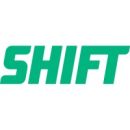Many e-commerce businesses are swamped right now. Supply chains are a mess, consumers are cutting spending and companies are taking steps to protect fulfillment and delivery staff.
Our current COVID-19 world aside, a number of underlying trends are moving the e-commerce industry in new directions. Innovations on the buyer’s end of the spectrum reflect sustainable consumer preferences and novel delivery methods for products and services not often associated with online marketplaces. Meanwhile, the technology that supports much of the e-commerce industry is also shifting.
If anything, the coronavirus pandemic is likely to accelerate changes like these and more. By our reckoning, these companies — e-commerce infrastructure builders and marketplaces alike — offer a glimpse into where developments could head.
An Evolving E-Commerce Model

In a nutshell: Fresh, sustainable and locally sourced grocery delivery.
How it works: Bay Area users sign up with their zip codes and shop for products grown and developed around Northern California. Once they choose a delivery date, they can progressively add products to their cart until a preset cut-off time. Good Eggs also prepares and ships meal kits, and says it remains committed to paying delivery drivers a living wage that doesn’t rely on tips.
Sign of things to come: Amazon lists almost any product under the sun and commits to delivery throughout the world in days. It’s an impressive service, but it can also set unsustainable or unreasonable expectations with consumers. By narrowing delivery windows and supply pools, Good Eggs offers a more sustainable e-commerce model that also supports small businesses.

In a nutshell: Online shopping for used cars, and test drives that come to you.
How it works: Shift Technologies hosts a digital marketplace for used vehicles, all of which have passed an inspection and have historical records on hand. Once the user finds a vehicle they like, a concierge delivers the car to their door for a test drive. If and when the user decides to make a purchase, the concierge handles any necessary paperwork on the spot.
Sign of things to come: Older online vehicle marketplaces can be bewildering for the average driver, who usually doesn’t have days to spend running around the city chasing leads. Shift’s model shows how e-commerce businesses can move beyond a mere online marketplace to present need-to-know information in a digestible format — and save customers’ time.

In a nutshell: Helps boutiques buy arts, crafts, jewelry, stationary and more in bulk directly from makers.
How it works: The experience of physically wandering a store or market to happen upon unique trinkets is an altogether different experience than online shopping. Boutique owners use Faire to browse and bulk order from makers in an attempt to replicate that experience. In return, Faire takes a 25 percent cut on the first order — which drops to 15 percent on all reorders.
Sign of things to come: Faire gives independent boutiques and artisan makers the same kind of powerful e-commerce technology other retailers use to acquire mass-produced products. In this way, boutique shoppers retain the serendipity of browsing their favorite shops while retailers can source wares from a wider network of makers.
Infrastructure Innovation

In a nutshell: An open development platform for building monetary exchange services.
How it works: Ripple produces a number of blockchain-based payment tools, including cross-border transaction services for banks and other money movers. The company’s Xpring developer platform facilitates the construction of micropayments, peer-to-peer services and e-commerce tools. The company uses Ripple’s XRP Ledger, an open-source, permissionless and decentralized blockchain on which users exchange currency without central intermediaries or currency conversion.
Sign of things to come: Considerable friction still accompanies many international transactions, in the form of fees and doctored exchange rates. As e-commerce networks sprawl across borders, tools like Xpring could help give blockchain ledgers a larger role to play in everyday economic activity.

In a nutshell: An end-to-end platform for selling, distributing and managing cloud-based software.
How it works: As part of their services, many businesses sell to and onboard their customers with third-party software. AppDirect’s platform powers web-based marketplaces for cloud applications, working with the likes of Comcast and Honeywell to help customers buy and manage their business applications. The idea is to give users a central hub to manage software subscriptions and simplify billing.
Sign of things to come: With businesses running multiple applications on top of one another, it’s only natural that solutions emerge to help simplify the wider ecosystem. As vendors increasingly bundle software products from multiple vendors, the kind of onboarding and management services provided by companies like AppDirect will continue to grow in demand.











_1.jpeg)